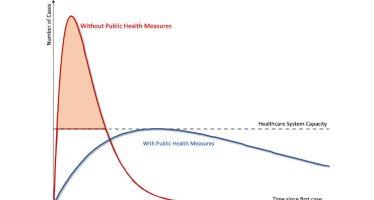Whilst Trade Talks Falter, Brits Celebrate Vaccine First
 Mind the paradox. Thanks to EU law, the UK has become the first country to certify for clinical use the coronavirus vaccine developed jointly by US biopharmaceutical company Pfizer and its German partner BioNTech. Under the provisions of the 2012 Human Medicines Regulations, more precisely Article 174, EU member states are authorised to fast-track temporary licensing approval in the event of an emergency, such as a pandemic.
Mind the paradox. Thanks to EU law, the UK has become the first country to certify for clinical use the coronavirus vaccine developed jointly by US biopharmaceutical company Pfizer and its German partner BioNTech. Under the provisions of the 2012 Human Medicines Regulations, more precisely Article 174, EU member states are authorised to fast-track temporary licensing approval in the event of an emergency, such as a pandemic.
However, that tiny detail was lost on UK Education Secretary Gavin Williamson who excitedly attributed the first to his country’s detachment from the EU and its newfound ability to strike out on its own for a world-beating performance on all fronts. Though no longer formally a member of the bloc, the UK is bound by the full extent of its laws and regulations under the terms of the Withdrawal Agreement which is set to expire on 31 December.
Williamson, who failed as defence secretary and was dismissed from his job only last year after leaking confidential information to the press, was in a celebratory mood and told listeners of London’s LBC Radio that the UK is a ‘much better country than every single one of them’.
Williamson went on to pour scorn on US, French, and Belgian scientists who, he said, were left in the dust by their British colleagues. The same holds true, Williamson assured, for the continent’s regulators who were not ‘getting on with things’ as the ‘brilliant and much better’ British clinicians were.
Earlier in the week, UK Health Secretary Matt Hancock had propagated the same alt-truths by attributing the lightning-quick approval procedure to Brexit, prompting the Amsterdam-based European Medicines Agency (EMA) to issue a statement suggesting the UK had prioritised speed over winning public confidence.
Hancock enjoys somewhat of a reputation for being slightly fast and loose with facts. In April, he ordered a change in the counting methodology that allowed him to claim credit for enabling 100,000 daily covid-19 tests to be carried out. The UK Statistics Authority immediately challenged Hancock’s claim and labelled his policy a ‘Potemkin testing regime’.
By Jove and Jingo
Williamson and Hancock are amongst the overexcited exponents of jingoism, a quintessentially British form of rabid nationalism that entails taking liberties with verifiable reality in order to demean, deride, and dismiss anything and anybody deemed inimical to the interest of, or offensive to, the realm.
The term was introduced and popularised by a song that resonated in pubs and music halls during the Russo-Turkish War of 1877-78 when the Russian army’s advance was stopped at the gates of Constantinople by the great western powers. This last-minute intervention denied the Russian Empire control of the Bosporus and the Dardanelles and kept its navy bottled-up in the Black Sea. It also prevented the collapse of the Ottoman Empire, though that was considered a mere footnote to the proceedings.
We don’t want to fight but by Jingo if we do
We’ve got the ships, we’ve got the men, we’ve got the money too
We’ve fought the Bear before, and while we’re Britons true
The Russians shall not have Istanbul!
Little seems to have changed in the intervening decades. The present rallying cry of Britons true – ‘The Europeans shall not have fish!’ – reverberates from Land’s End to John o’ Groats with EU chief negotiator Michel Barnier assigned the role of the ‘rotten’ tsar’s envoy.
Armed with the patience of a saint, Barnier this week inadvertently stepped into the crossfire after a number of EU member states raised the alarm over reports from London that concessions had been made to the UK. On Wednesday, Barnier was summoned to attend an inquest of EU ambassadors to explain his latest moves. The representatives of France, Belgium, The Netherlands, and Denmark impressed on Barnier the need to insist on a ‘robust, workable, and enforceable’ mechanism to ensure the UK honours its commitments – and is immediately sanctioned if it fails to do so.
Megaphones
The four more outspoken member states are backed by others, including Germany, less inclined to employ megaphones to publicly voice their concern. In September, the UK government tabled an ‘internal market bill’ that overrides key parts of the Withdrawal Agreement (WA) signed and ratified just months earlier. It also is preparing a finance bill that violates the UK’s treaty obligations. Officials in Brussels hinted that the EU will instantly pull out of all talks should this second attempt to undermine the WA be pursued any further.
In London, Barnier assured the ambassadors that he is well aware of the risks in dealing with a government that flirts with backtracking on its commitments and reportedly said adequate remedial provisions will be included in any future deal.
The main stumbling block in the negotiations is no longer access to British fishing grounds, but the imposition and monitoring of ‘level playing field’ conditions aimed at keeping the UK aligned with the EU on labour and environmental standards as well as rules on state aid. Irish Foreign Minister Simon Coveney said that a deal is still possible if the EU side ‘holds its nerve’ and trusts Barnier to deliver a satisfactory outcome.
Just before meeting with his French counterpart in Paris, Coveney warned that the next few days will be full of ‘tension and standoffs’ but expressed optimism that a barebones free trade agreement can yet be sealed. He also dismissed the possibility that talks could resume quickly next year in case of a breakdown this week: “That is a very dangerous assumption because of the political tension that will follow a collapse of the negotiations.”
Meanwhile, Prime Minister Boris Johnson remains hopeful that a deal can yet be reached but is equally confident that trade between the UK and the EU can continue on terms set by the World Trade Organisation (WTO). In a gesture of goodwill, Johnson lowered his demand for the share of fish taken from British waters by EU trawlers to 60%. However, the EU rejected the offer out of hand and seeks to retain 80% of the catch.
You may have an interest in also reading…
Japan Opens the Money Spigot
Once upon a time, Japan was said to pose a menace to the economic hegemony of the industrialised countries of
President Trump Silenced by Major Networks
Whilst you were not looking the five largest US tech companies added some $700 billion to their combined market cap
Otaviano Canuto: More Than One Coronavirus Curve to Manage – Infection, Recession and External Finance
Flattening Coronavirus Curves – Otaviano Canuto First appeared at the Policy Center for the New South The global reach of
















































































